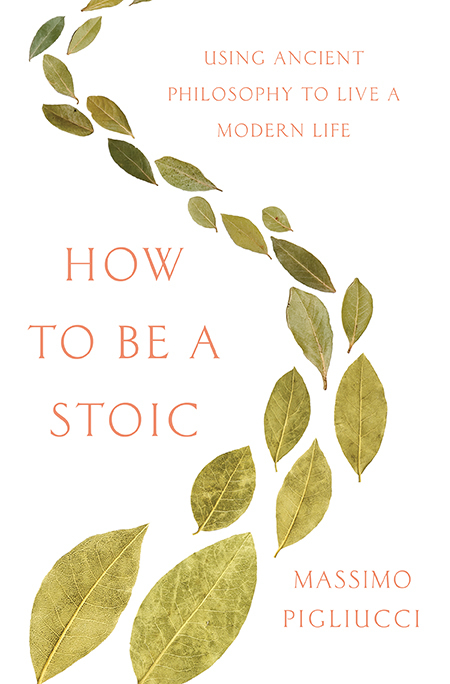
How to Be an Adult in Relationships: The Five Keys to Mindful Loving
by David Richo
30 popular highlights from this book
Key Insights & Memorable Quotes
Below are the most popular and impactful highlights and quotes from How to Be an Adult in Relationships: The Five Keys to Mindful Loving:
“Self-actualization is not a sudden happening or even the permanent result of long effort. The eleventh-century Tibetan Buddhist poet-saint Milarupa suggested: "Do not expect full realization; simply practice every day of your life." A healthy person is not perfect but perfectible, not a done deal but a work in progress. Staying healthy takes discipline, work, and patience, which is why our life is a journey and perforce a heroic one.”
“At every stage of life, our inner self requires the nurturance of loving people attuned to our feelings and responsive to our needs who can foster our inner resources of personal power, lovability, and serenity. Those who love us understand us and are available to us with an attention, appreciation, acceptance, and affection we can feel. They make room for us to be who we are.”
“Most people think of love as a feeling but love is not so much a feeling as a way of being present.”
“We don’t fear physical closeness because we fear proximity itself. Most of us earnestly want physical contact with those who love us. Rather we fear what we will feel when we get too close. The real fear, then, is of ourselves. This fear is not something to rebuke ourselves for. It is our deepest vulnerability, the very quality that makes us most lovable.”
“Real love does not come off the rack; it is uniquely tailored by the lover to the beloved. Part of the pain of letting go of someone who really loved you is letting go of being loved in that special way.”
“Bread takes the effort of kneading but also requires sitting quietly while the dough rises with a power all its own.”
“there is nothing to take over if you are not putting up any resistance.”
“Our identity is like a kaleidoscope. With each turn we reset it not to a former or final state but to a new one that reflects the here-and-now positions of the pieces we have to work with. The design is always new because the shifts are continual. That is what makes kaleidoscopes, and us, so appealing and beautiful.”
“Thus, we strive for intimacy with the whole universe, not just with one person.”
“Once we love ourselves, people no longer look good to us unless they are good for us.”
“When I see I am nothing, that is wisdom. When I see I am everything, that is love. My life is a movement between these two. —NISARGADATTA MAHARAJ”
“It is not that practice makes perfect but that practice is perfect, combining effort with an openness to grace.”
“spirituality. In healthy intimate relationships we do not seek more than 25 percent of our nurturance from a partner; we learn to find the rest within ourselves.”
“In pain with you, and yet I could not go. I stayed since nothing better came along. I loved you by default or just for show, My life a whistled flat unechoed song. I groped for notches in our dun abyss, And looked for more in lonely only less. I shunned the path adorned with signs to bliss, And stood the loyal ground of wait or guess. It took the tender you to shift the scene, Bold arsonist beneath our tinder stage! I then in friendly fire to earth careen And from our props and ashes disengage. I begged you long with such a silent ache In fear of, wish for mercy for my sake. What Love Feels Like”
“We feel loved when we receive attention, acceptance, appreciation, and affection, and when we are allowed the freedom to live in accord with our own deepest needs and wishes. These”
“If you use sarcasm, ridicule, teasing, pinching, tickling, or barbed kidding at times, make a commitment to cease using these passive-aggressive weapons against your partner or anyone.”
“We hear with our ears; we listen with our intution and our heart.”
“Love is experienced differently by each of us, but for most of us five aspects of love stand out. We feel loved when we receive attention, acceptance, appreciation, and affection, and when we are allowed the freedom to live in accord with our own deepest needs and wishes.”
“As long as you hold onto wanting something from the outside, you will be dissatisfied because there is a part of you that you are still not totally owning. . . . How can you be complete and fulfilled if you believe that you cannot own this part [of yourself ] until somebody else does something? . . . If it is conditional, it is not totally yours. —A. H. ALMAAS”
“Attention from others leads to self-respect. Acceptance engenders a sense of being inherently a good person. Appreciation generates a sense of self-worth. Affection makes us feel lovable. Allowing gives us the freedom to pursue our own deepest needs, values, and wishes.”
“engaging with our grief is a form of self-nurturance and liberation from neediness. Paradoxically, to enter our wounded feelings fully places us on the path to healthy intimacy.”
“Mindfulness is an ancient meditation mode in which we let go of our fears, our attachments to control and being right, our expectations and entitlements, and our judgments of others.”
“We cannot attune if we assume certain feelings are right and others wrong. To attune to someone, we need neutrality toward all feelings, moods, and inner states and the fearless openness of mindfulness.”
“We feel loved when we receive attention, acceptance, appreciation, and affection, and when we are allowed the freedom to live in accord with our own deepest needs and wishes.”
“Beings as complex as ourselves need retreats from others to explore the depths of our character and our destiny. We need regular periods of solitude to replenish ourselves, to locate new sources of creativity and self-knowledge, and to discover possibilities in our souls that are invisible when we are with others.”
“We do not allow others to control us, but we do understand and feel their pain when we realize that their controlling manner is a compulsion. Most controlling people cannot help themselves; they are not in control of the controlling. They are not insulting us by trying to control us; rather, they automatically take charge and dominate people and situations. They do this because of a chilling fear that they cannot handle letting the chips fall where they may. It takes a spiritual program to be liberated from the compulsion to be controlling - and to become compassionate toward controlling people.”
“I appreciate the ways others love me, no matter how limited. I am letting go of expecting - or demanding - that they love me exactly as I want them to. At the same time, I can always ask for the kind of love that I long for.”
“There is a connection between freedom and self-confidence: When you are kept from expressing your deepest needs and wishes, you lose trust in their validity and in your own judgement. You survive by finding out the rules and following them, thus hiding what you really want. You make it your purpose in life to please others rather than to affirm yourself.”
“My greatest joy is in the realization that I can still love. That capacity remained intact despite all the blows. That the love made it through means that I made it through.”
“Part of the pain of letting go of someone who really loved you is letting go of being loved in that certain way.”


